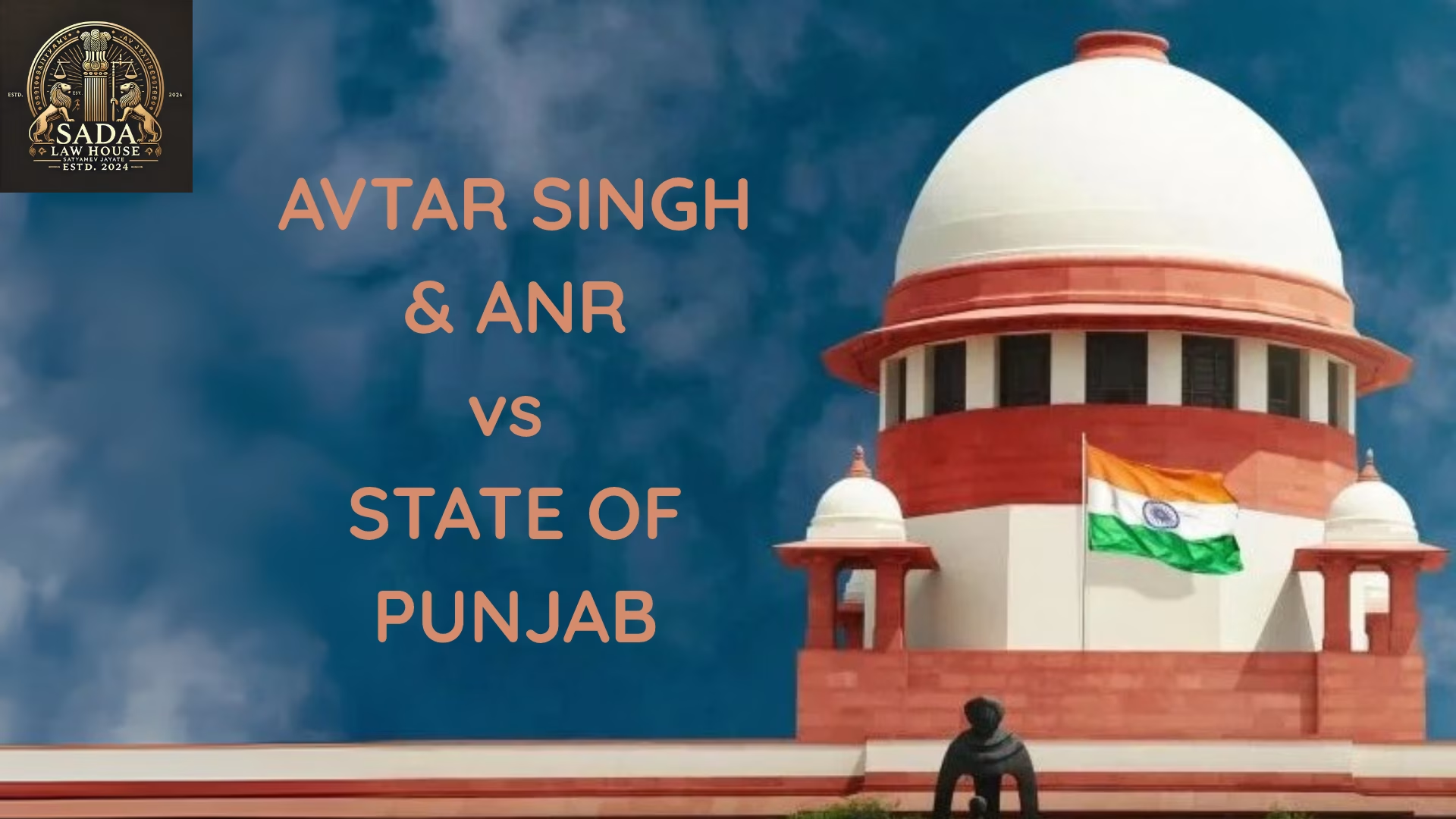Avtar Singh & Anr v. State of Punjab (2023)
- Nisha Kumari
- 10 October 2025

Introduction
The case of Avtar Singh & Anr v. State of Punjab arose from a 1996 criminal prosecution concerning charges of gang rape and wrongful confinement. The appellants, Avtar Singh and Sohan Lal, were convicted under Sections 342 and 376(2)(g) of the Indian Penal Code (IPC) by the Trial Court and their conviction was upheld by the Punjab and Haryana High Court. Dissatisfied with these findings, they appealed to the Supreme Court of India, which carefully examined the credibility of the prosecution’s evidence and the impact of inconsistencies in the case.
Background
The incident was reported on 22 July 1996, when a woman lodged an FIR alleging that she was abducted and gang raped by three men — Avtar Singh, Sohan Lal, and Gian Singh — in District Hoshiarpur, Punjab. She claimed that she was confined in an under-construction house for three days without food or water. Medical reports, however, indicated that she was well-nourished and physically normal. The Trial Court convicted two accused while acquitting Gian Singh. The High Court upheld the conviction, leading the appellants to seek relief from the Supreme Court.
Key Developments
Trial Court:
Convicted Avtar Singh and Sohan Lal under Sections 342 and 376(2)(g) IPC.
Acquitted Gian Singh due to insufficient evidence.
High Court:
Affirmed the conviction, relying on the sole testimony of the prosecutrix.
Supreme Court Appeal:
The appellants challenged the conviction, citing contradictions, lack of corroboration, and implausibility in the prosecution’s case.
They also argued that the acquittal of Gian Singh weakened the entire allegation of gang rape.
Issues
Whether the conviction of Avtar Singh and Sohan Lal under Sections 342 and 376(2)(g) IPC was legally sustainable given:
The inconsistencies in the prosecution’s case;
The acquittal of one co-accused (Gian Singh); and
The absence of credible, corroborative, and medical evidence.
Judgment
Effect of Co-Accused’s Acquittal:
The Supreme Court noted that the acquittal of Gian Singh broke the continuity of the alleged gang rape, raising serious doubts about the prosecution’s version.Lack of Corroboration:
The Court emphasized that the medical evidence contradicted the claim of confinement without food or water and found no injuries suggestive of resistance.Implausibility:
The alleged incident took place in a site where laborers were present, yet no alarm or complaint was raised — a circumstance the Court found improbable.Benefit of Doubt:
Applying the principle of “beyond reasonable doubt,” the Court held that the inconsistencies were substantial enough to warrant acquittal.Final Verdict:
The Supreme Court acquitted Avtar Singh and Sohan Lal, setting aside their convictions and granting them the benefit of doubt.
Current Status
Avtar Singh and Sohan Lal stand acquitted of all charges by the Supreme Court as of 2 August 2023. The judgment reinforces the necessity for credible and corroborative evidence in criminal prosecutions, especially in cases involving serious allegations like gang rape.
Conclusion
The Supreme Court’s ruling in Avtar Singh & Anr v. State of Punjab highlights the principle that convictions must rest on evidence free from reasonable doubt. The inconsistencies in the prosecution’s version, absence of corroboration, and the acquittal of a co-accused collectively weakened the case. Upholding the presumption of innocence, the Court extended the benefit of doubt to the appellants and acquitted them, emphasizing that no person should suffer conviction based on doubtful evidence.
Case Laws






